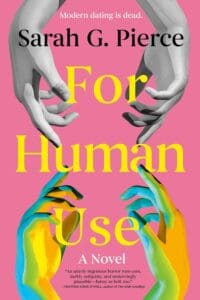
Synopsis:
Born to destroy, raised to love, condemned to choose.
For Panthea, every breath she draws in the Southern Kingdom is an act of repression. Her faith in her goddess keeps her from sin. Her guardian, Rassus, keeps her safe. And a powerful drug keeps her deadly power in check. Yet, none can change what she is: Panthea is an Erkenblood, and her power will always be one misstep away from turning her into a mindless killer.
But for now, her drugs are enough. Her guardian is enough. Her prayers are enough.
Until they aren’t.
When the Queen’s Inquisition raids her home in search of an ancient artifact, Rassus is hauled away, and Panthea finds herself thrust into the center of a bloody conflict with evil on both sides. Can she save the man who raised and protected her without becoming the monster the whole kingdom fears she is? Or will Panthea unleash her darkness… and sacrifice her soul in the process?
Review:
A fast-paced read with plenty of intrigue and danger, The Erkenblood hooked my attention early on and wouldn’t let go. There was a lot at play in this world between the arcane powers, the politics, and the history. And not all of my questions were answered by the end (meaning, I need to read book two once it’s available.)
While the synopsis focuses strictly on Panthea, there was another major character involved in the story too: Hilia. Panthea was a young Erkenblood (one with the innate ability to wield arcane power), who struggled with controlling her power. She was prone to succumbing to “power-lust,” a condition that rendered her a danger to everyone around her, whether friend or foe. But because of her power, both the queen and the rebellion seek to use her.
Hilia was a sleeper agent for the rebellion who holds the position of handmaiden to the queen. Unlike Panthea, Hilia had no arcane abilities, but she was determined to bring the monarchy down by any means necessary. Her position gave her access to the palace, allowed her to eavesdrop on important conversations, and most importantly, kept her near the queen—her ultimate target.
Neither main character had the full picture of what is going on between the queen and the rebellion. Both had questions, many of which were never answered—either because their associates didn’t know the answer, or because they refused to share it. The conflict had been raging for years, with casualties on both sides, but the rebellion’s hope throughout this book was to put an end to it. The queen’s motives were less obvious…until the end (you’ll have to read it to learn more.)
Between all the political maneuvering and Panthea’s unstable power, this was an engaging read, and I want to know more. I’m hoping we don’t have too long a wait for book two.









Leave a Reply